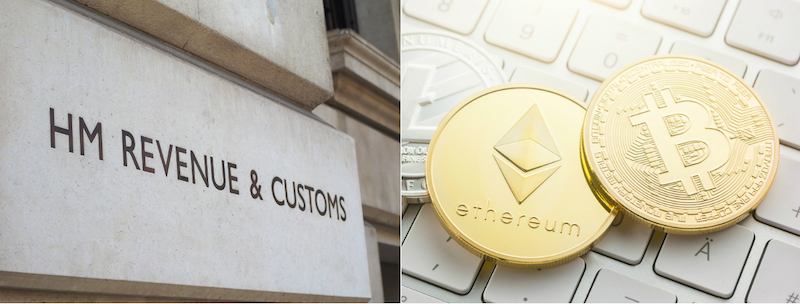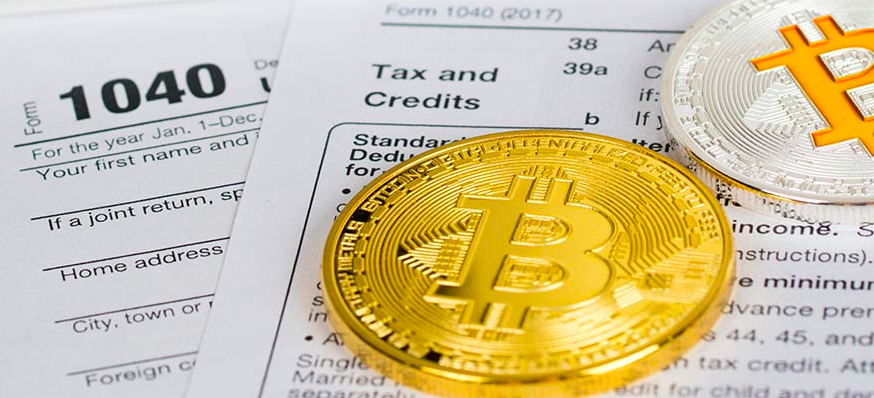
Do I need to pay tax on Bitcoin? It depends. Although Bitcoin is a form of digital currency, HMRC does not consider it to be a currency or money.
Table of Contents
What is cryptocurrency? When it comes to taxation, HMRC looks at crypto as an asset. In other words, the disposal of crypto is subject to Capital Gains Tax. Cryptocurrency profits/gains are taxable in the UK, losses are usually available for some form of write off.
When you buy and hold Bitcoin as a personal investment, you don’t need to pay any taxes. However, when you decide to dispose of your digital coins, that’s when you need to pay the CGT.
Do I have to pay tax on bitcoin profit?
What is UK crypto tax?
Most trading in Bitcoin is taxed under the same rules as shares and securities. Which is Capital Gains Tax? You don’t need to pay Income tax, unless you buy and sell Bitcoin on such a regular occurrence, with such a high level of organization that HMRC deems a trade to be taking place.
The method and amount of which you are taxed depend on your personal circumstances.
- Traders are taxed between 20% and 45%,
- Investors are taxed between 10% and 20%.
Is bitcoin subject to capital gains tax?
When do I need to pay capital gains tax on bitcoin or any other crypto?
- Sell Bitcoin for money
- Exchange Bitcoin for another type of cryptocurrency
- Use Bitcoin to pay for goods or services
- Give Bitcoin away to another individual (not a spouse)
The good news is that overall gains up to £11,700 are exempt from capital gains tax. It means that you only need to pay capital gains tax for gains above this amount.
Also, keep in mind that if the total assets sold over the year were more than 4 times this amount (that is £46,800) you’ll have to report the gains on your tax returns, even if they are below the exemption limit. The final tax amount you need to pay will depend on your income bracket and the marginal income tax rate.

Taxes for individuals
The amount of capital gains is the difference between the sales proceeds from the disposal and the acquisition cost of the crypto asset. In other words, sale price minus buying price. If you’re a higher or additional rate taxpayer, your capital gains tax rate will be 20%. If, on the other hand, you’re a basic rate taxpayer, your cryptocurrency tax rate will depend on your taxable income and the size of the gain.
A special pooling method is used to calculate the cost of an asset (including digital assets) when it’s disposed of. With the pooling method, you basically end up averaging out the acquisition cost of all the crypto you’ve purchased to calculate the cost basis.
Taxes for businesses and traders
If you are a high-frequency trader or business, then it is different math to calculate your taxes.
If your business involves cryptocurrency transactions, then the rules are more complex. You may be liable to pay a number of different taxes like CGT, Income Tax, Corporation Tax, Stamp Duties, and even VAT depending on the type of transaction.
How does the HMRC decide whether you’re holding crypto as an investment or whether you qualify as a crypto trader?
Only in exceptional circumstances would HMRC expect individuals to buy and sell crypto assets with such frequency, level of organization, and sophistication that the activity amounts to a financial trade in itself. If it is considered to be trading then Income Tax will take priority over Capital Gains Tax and will apply to profits (or losses) as it would be considered as a business
You can refer to the Business Income manual (BIM56800) for more information on the relevant approach.
Tax on cryptocurrency
In this section, I would like to review each type of transaction and comment on the crypto tax obligations accordingly.

Buy cryptocurrency (GBP/BTC)
If you want to buy and hold any crypto coin, you don’t need to pay any taxes. However, it is recommended to keep all the records of these transactions so that you can deduct the costs when you eventually sell them.
Sell cryptocurrency (BTC/GBP)
What is Bitcoin tax? When you sell any cryptocurrency, it is subject to Capital Gains Tax. Every crypto coin is considered to be a separate CGT asset.
Trade cryptocurrency (BTC/ETH)
This means that you’re basically disposing of a CGT asset and acquiring another one. The market value of the crypto that you receive is considered as the sales price for that transaction. If this crypto cannot be valued for some reason (eg. ICO tokens), then you can use the market value of the crypto you sold.
Cryptocurrency to Stablecoins (BTC/TUSD, TUSD/BTC)
A stablecoin is simply a class of cryptocurrencies that offers price stability by being backed by a reserve asset, usually a stable fiat currency like USD. As far as the HMRC is concerned, stablecoins like TrueUSD are exactly the same as any other cryptocurrency, and so the tax rule is the same as for any other crypto to crypto trading.
Tax on ICOs and IEOs
ICOs (Initial Coin Offerings) or IEOs (Initial Exchange Offerings) refers to a situation where investors can purchase tokens/coins in a yet-to-be-released cryptocurrency/company. In this case, investors pay for the new token through existing cryptocurrency like Bitcoin or Ethereum.
What does it mean from the taxation point of view? You will have to pay CGT on the crypto that you exchange for the ICO token. The “sales proceeds” here will be the market value of the existing crypto (not the new token) on the date that the exchange took place. Plus, this same market value will also serve as the cost basis for the new token that you receive from the ICO, which you can use to calculate pooled costs.
Paying for goods/services with cryptocurrency
From the HMRC perspective, it is similar to selling crypto and is subject to CGT. It’s important to remember that the market value of the crypto that you use to pay for something will be counted as the sales proceeds.
Move crypto coins between your own wallets
While there’s no tax on moving crypto between different wallets, it’s important to note that you need to keep a track of these movements. If you don’t take these movements into account the HMRC might assume they are disposals and tax them.
Tax on Crypto Income
If you receive your employment income in the form of crypto, it is considered money’s worth. If you receive all or part of your salary/freelance income in cryptocurrency instead of fiat currency, you will have to pay income tax and National Insurance contributions based on the value of the crypto on the date of receipt.
The precise rules are different depending on whether the crypto assets you receive are Readily Convertible Assets (RCAs) or not. Any disposal of such crypto-assets (that are received as employment income) is subject to Capital Gains Tax.
Bitcoin mining income tax
As you may realize at this point, you will need to pay taxes if you are making any type of income by mining new coins. However, there is a bit of a difference depending on if this is your hobby or full-time job.
Mining as a hobby
If mining is just a hobby for you, then any income from mining has to be declared separately under the heading of “Miscellaneous Income” on your tax return.
The income, in this case, will be the fair market value of the crypto at the time you receive it. Appropriate expenses can be deducted from this income before adding it to the taxable income.
On the other hand, when you dispose of this crypto, that will be subject to capital gains tax. Rewards received in exchange for staking activity will also be considered miscellaneous income and be subject to taxes. You will also have to pay National Insurance Contribution for this transaction.
Mining as a business
If your mining is classified as a business based on the criteria mentioned above, then the mining income will be added to trading profits and be subject to income tax. Similarly, fees or rewards received in exchange for any mining/staking activity will also be added to taxable income. Appropriate expenses would be deductible, of course.
When you spend this cryptocurrency, any gain in value from the time of acquisition will be added to the trading profits. You will also have to pay National Insurance Contribution for this type of transaction.
Keep records of your transactions
It is recommended to keep detailed records of all your crypto transactions. Since even crypto-to-crypto trades are taxable, you will need to figure out the value of the crypto at the time of sale. And believe me, it can be really time-consuming if you are running bots.
Another thing to consider is that crypto exchanges don’t always provide complete records, so it’s best to be proactive and keep a log of your trades. Nowadays, there are also tools such as Koinly, Cointracking, Lukka, BitcoinTaxes, and others that can help you with your record-keeping for tax purposes.
How to pay taxes on cryptocurrency?
I believe now you can be sure when you need to pay taxes. And there might be another question – how to pay?
Taxes are paid via the same means as a non-crypto currency-related tax:
- Via HMRC’s self-assessment tax return, which is completed yearly on an individual level.
- Via a Corporation tax return, which is completed for Limited Companies.
How to reduce your tax bill?
Depending on the volume of crypto you trade yearly, your CGT can be a bit high, so you may want to lower it as much as possible. Here are a few tips for you:
- Share with your partner
You can easily double your tax-free capital gains allowance to almost £24,000 by giving the assets to your spouse or partner.
- Deduct losses
Cryptocurrency can be really volatile. You may gain or you may lose if the price suddenly falls down. In this case, you can deduct any losses from your gains to lower your bill.
This claim treats the crypto assets as if they have been disposed of and re-acquired at the amount stated in the claim. This allows you to write off a major loss for an asset that is now illiquid.
Summing Up
We all need to report our income and pay taxes every year. Bitcoin and other cryptocurrencies that bring you some type of profit should also be mentioned in your form. UK tax on cryptocurrency is now well-addressed by the HMRC and gives you a clear idea of how to manage your taxes.
You can also use a tax calculator or 3rd party software to help you identify the amount due to pay to make sure you don’t own anything to Her Majesty.





 usdt
usdt xrp
xrp

